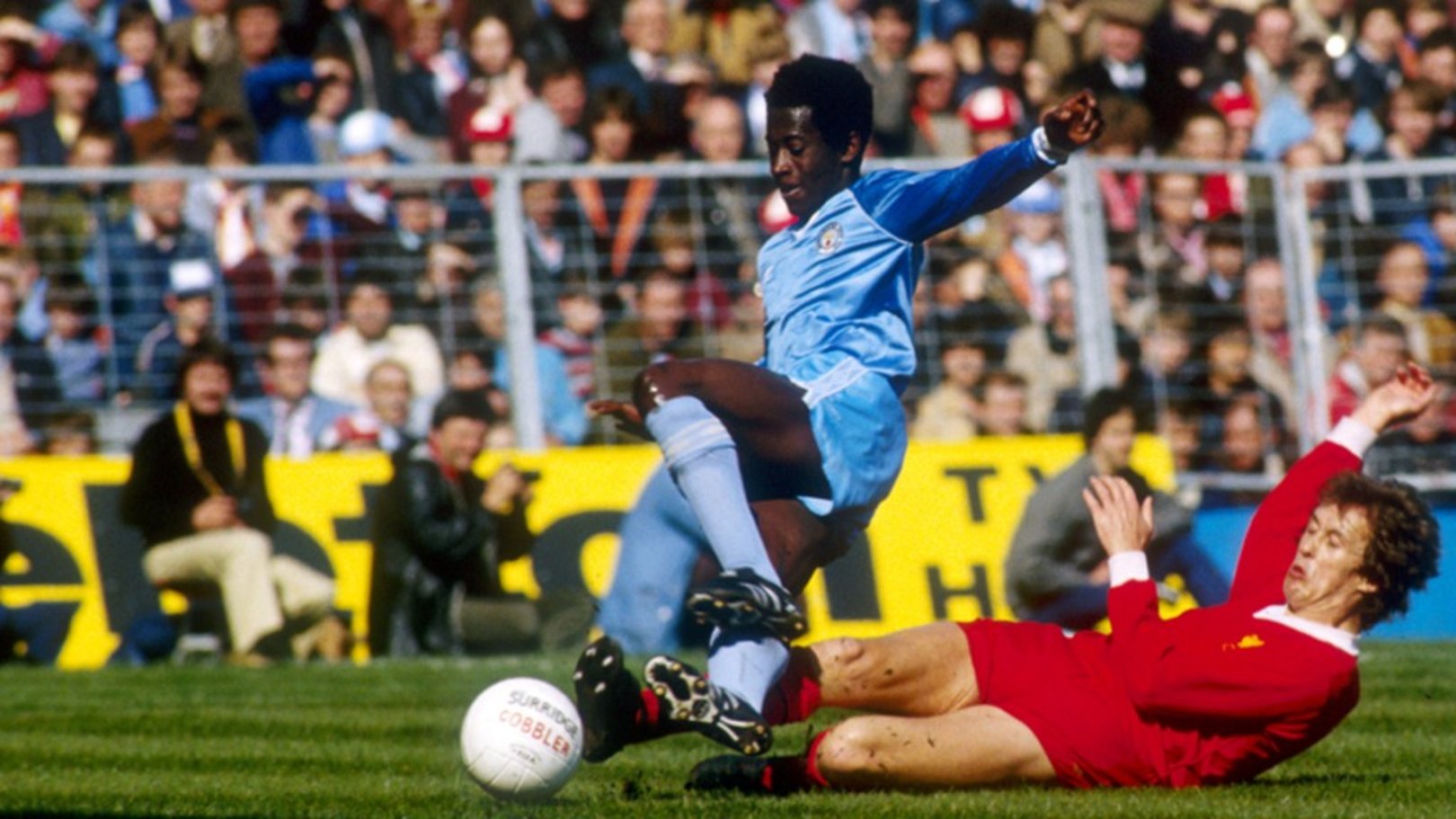Composed, skilful and blessed with an impressive turn of pace, Clive the Jive, as he was affectionally known, was popular with supporters and his departure to Chelsea at the end of the 1986/87 season served only to compound the misery of the Club’s relegation to Division Two.
Wilson, who turns 59 today, joined as a midfielder but was used predominantly at left-back during a stop-start five-and-a-half-year spell.
It wasn’t until his final campaign, when Jimmy Frizzell showed the faith which had been absent under John Bond and Billy McNeill, that the local lad truly established himself.
Looking back he feels his natural attacking instincts counted against him at Maine Road, though he freely admits there was room for improvement on the defensive side of his game at that stage of his career.
“The reality is I preferred to play in midfield, but I played more consistently at full-back, because I got more of the ball and I got more time on the ball,” he told mancity.com.
“With me being a midfielder, my first thought was always going forward. I didn’t endear myself to a few managers because they thought I’d go missing on my defensive duties, but hopefully my forward play made up for it.
“Those managers were safety first and will have thought I didn’t defend as well as I attacked. City were struggling at the time and they always went safety first.
“I was nowhere near as good a defender as I was going forward until later in my career. Initially I wasn’t taught the position, I just played there.
“Even though you know your objective is to stop your winger from beating you and getting the ball in, it is also about positional play and where you are when you’ve not got the ball.
“I learnt that playing under Gerry Francis and really understood it.”
It was under Bond that Wilson made his first team debut, but he was used sparingly throughout the manager’s tenure.
A quiet, unassuming man, Wilson was never one to kick up a fuss when left out of the side and it is something he thinks may have counted against him.
“I can’t put my finger on it and say why I didn’t always play regularly,” he adds.
“Sometimes, I was the easier one to leave out. I didn’t go kicking and screaming to the manager’s office so when there was a decision to be made, it will have been easier to leave me out than another player because I wasn’t causing the manager any issues.”
Wilson’s time playing under Frizzell was a stark contrast and it was a period in which he thrived.
The former City man believes he benefited from the Scot’s continued faith in him, even when his performances dipped, and with the benefit of a 21-year playing career behind him, he says a player’s relationship with their coach can go a long way to determining how successful they are.
“He [Frizzell] believed in me more and gave me a chance to play two or three not so great games and still kept me in the team,” Wilson concludes.
“I would say if you’re going to be successful in football, you need skill, application and dedication, but you also need a manager that likes you as well.
“If you’ve got a manager that likes you, you are half the way there to proving yourself.”









